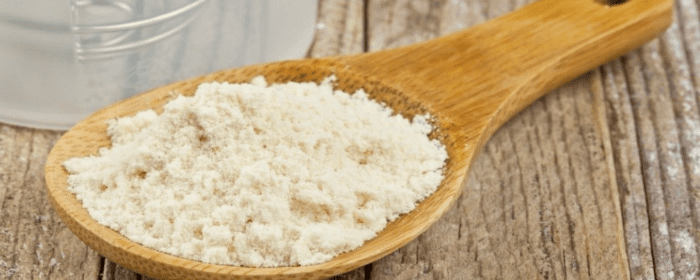
by admin | Jul 27, 2018 | Health Awareness, Lupus, Multiple Sclerosis, Parkinson's Disease, Studies
Colostrum is the milk produced by the mammary glands during pregnancy prior to giving birth. It is rich in antibodies that help prevent the newborn from various conditions. Colostrum as compared to normal milk contains a high amount of nutrients and fat, making it highly beneficial.
The most important thing to know about colostrum is that it is not a medication. It is a naturally designed food that maintains the health and prevents conditions. Colostrum is effective for shutting down the onset of conditions and infections, which helps the body to repair itself and allows the individual to enjoy a healthy and radiant life.
Colostrum is the Key to Gut Health
Colostrum is the source of everything that is required to maintain a healthy gastrointestinal tract. It is known that most of our conditions take birth in the gut and proper absorption of nutrients is the key to great health. It is one of the primary function of colostrum to maintain a healthy gut, which is the basis of the overall healthy body.
When the beneficial bacteria present in our intestine is outnumbered by the harmful bacteria then our gut is said to be out of balance. This imbalance has many consequences, one of which is the leaky gut syndrome.
Leaky gut syndrome is a condition due to which various pathogens and toxins pass through the lining of the gut and move freely in the body, this leads to various conditions. Leaky gut syndrome, if not treated can be a life-threatening condition.
Colostrum is an optimal treatment for treating leaky gut syndrome because it has growth factors that help repair the damage of the intestine to normal. It is also rich in immunoglobulins that control the pestering of fungi and bacteria in the body. In various conducted studies colostrum has successfully increased the surface area of the lining of the intestine, thereby improving the absorption of nutrients.
Colostrum: The Perfect & Functional Food
Looking at all the immune and growth factors that are present in colostrum, it is called the best alternative to pharmaceutical drugs, from steroids and antibiotics. Colostrum is also safe for people suffering from lactose intolerance and has no allergic reactions or side effects.
A functional food is one that has potential health benefits compared to normal food and is high in nutrients. Colostrum is high in nutrients and can be combined with other food products. It is most effective when taken on an empty stomach. Available in the form of capsules, colostrum is more effective and bioavailable.
Colostrum for Autoimmune Conditions:
Autoimmune conditions are those in which the body starts producing antibodies against itself. Colostrum has shown to be highly effective to treat autoimmune conditions like Lupus, Parkinson’s disease, and Multiple Sclerosis. Chemokine receptors have been observed to be the cause of the development of all these conditions. Colostrum produces antagonists of these receptors and has been shown to decrease the symptoms of many common autoimmune conditions.
Colostrum Used as a Topical Application:
Colostrum, if applied externally can help heal the burns, acne, cuts and various abrasions and even surgical cuts. If applied orally, it can help deal with sensitive teeth relieve canker sores and gingivitis.
Some Overall Benefits of Colostrum are:
Anti-inflammatory
Anti-aging
Anti-fungal
Anti-bacterial
Cancer
AuAutoimmuneondition
Blood pressure
Cholesterol
Sugar levels
Diabetes
Digestion
Flu prevention
Fat reduction
Heart health
Gut health
Immunity
Joint repair
Immunity
Mobility
Muscle repair
Pain
Stamina
Tissue repair
Wound healing
Weight loss
Inflammation
Below is a list of some common conditions for which colostrum can be effective:
Allergies
Anemia
Arthritis
Autoimmune conditions
Asthma
Bacterial infection
Bone marrow transplant
Cancer
Alcoholism
Allergies
Anemia
Arthritis
Crohn’s disease
Chronic fatigue
Diarrhea
Fibromyalgia
Food poisoning
Heart disease
Hepatitis
Influenza
Intestinal bowel syndrome
Joint repair
Leaky gut
Lupus
Multiple sclerosis
Osteoporosis
Obesity
Premature birth
Osteoporosis
Ulcer
Yeast infection
Viral infection
Where Can I Find Colostrum?
If you have any symptoms suggestive of gastro-intestinal dysbiosis (diarrhea, constipation, bloating, reflux, stomach discomfort or pain) then you should seek further work-up by your physician or a Functional Medicine Doctor.
In the meantime, it is recommended to start using Bovine Colostrum which can be found at Sovereign Laboratories at www.mysovlabs.com. Simply mix 2 tablespoons in 6oz of water and consume twice per day on an empty stomach. This product is full of gut healing immunoglobulins. Use for 2-3 months should result in significant improvement.
In addition, it is also recommended to take a good probiotic while using your bovine colostrum. Vitamin D levels should be optimized to levels between 80-100.

by admin | Jul 25, 2018 | Bone Marrow, Health Awareness, Stem Cell Research, Stem Cell Therapy
Stem cells derived from bone marrow, or hematopoietic stem cells, are a topic of significant debate in the medical community. While they have exhibited significant potential for benefiting people with both cancerous and noncancerous diseases including immune deficiencies, not all methods for administering bone marrow are created equal. While intra-articular injections of bone marrow are more common and considered safer, intravenous methods pose serious risks, which are explored here.
Intra-articular injections involve injecting bone marrow directly into the compromised joint, whereas intravenous methods entail infusing bone marrow stem cells into the body through the veins. Intra-articular injections have shown promise in treating conditions such as osteoarthritis (OA) in joints such as the knee and has proven to achieve pain relief for moderate-to-severe cases of osteoarthritis.
Intra-articular treatments are localized, so the injected bone marrow is already in its target location upon being administered. According to research, this form of therapy is generally considered to be safe. In intravenous bone marrow transplants, however, there are serious risks associated with treatment. Bacterial infections are common, while viral and fungal infections can also occur and cause life-threatening conditions, such as organ failure.
Risk factors for developing any complication associated with intravenous bone marrow transplantations vary based on a number of factors, including the patient’s age, genetics, and type of disease being treated. With that said, due to its limited risks, intra-articular bone marrow methods appear to be the safest form of treatment currently available. Although each patient will need to discuss risk factors alongside potential benefits with his or her physician, oftentimes the risks appear to outweigh the potential benefits.
There are alternative therapies with fewer potential side effects which may be explored such as Adipose and Umbilical Cord-derived stem cells. These regenerative medicine treatments not only can treat osteoarthritis and sports-related injury conditions, but have also shown positive results in treating neurological conditions such as Multiple Sclerosis, Parkinson’s disease, Post-Stroke, and Traumatic Brain Injuries (TBI).

by admin | Jul 24, 2018 | Health Awareness, Multiple Sclerosis, Parkinson's Disease, Rheumatoid Arthritis, Stem Cell Therapy
In a recent edition of JAMA, the results of a 30-year study examining the possible connection between stress and autoimmune disease were revealed. The findings don’t simply demonstrate a link; instead, they reveal that stress-related disorders are significantly associated with risks of developing the subsequent autoimmune disease. In the study of over 100,000 subjects, the correlation showed that individuals with a diagnosed stress-related disorder were 30-40% more likely to later be diagnosed with one of many possible autoimmune diseases.
What is a Stress-Related Disorder?
The type of stress study subjects encountered is not to be confused with the stressors we encounter during everyday life. Sitting in traffic or worrying about being late for a meeting, for example, are examples of acute stress. These forms of short-term stress generally come and go but fail to create the sort of long-term damage produced by chronic stress, or stress-related disorders.
Stress-related disorders are mental health conditions resulting from short- and long-term anxiety from mental, physical, or emotional stress. Examples of these include post-traumatic stress disorder (PTSD), obsessive-compulsive disorder, acute stress reaction, and adjustment disorder.
Which Types of Autoimmune Disorders Are Linked to Stress?
According to the study’s findings, individuals with stress-related disorders were more inclined to be diagnosed with one of 41 autoimmune disorders. Among the many autoimmune diseases observed by the research were psoriasis, Crohn’s disease, rheumatoid arthritis, and celiac disease.
Interestingly, additional variables seemed to further increase – or decrease – one’s risks of developing an autoimmune disease. Being diagnosed with PTSD at a young age, for instance, increased risks, while receiving antidepressant treatment shortly after being diagnosed with PTSD lowered rates of subsequent autoimmune disease diagnosis. Thus, it could be inferred that receiving treatment for a stress-related disorder may help to treat not only the stress itself but also minimize the lasting implications caused by it, including increased risks of disease.
What Causes the Connection?
Further research must still be conducted to pinpoint the precise long-term effects stress has on the body, and more specifically, on the immune system. Experts speculate that factors such as changes in cortisol levels and pro-inflammatory cytokine levels may need to be examined. Another hypothesis set forth by researchers is that individuals living with conditions such as PTSD might be more inclined towards unhealthy behaviors such as drinking more alcohol or sleeping less.
Although further research into this connection has yet to be conducted, one important takeaway from the findings is the fact that seeking treatment for stress-related disorders should now be considered more critical than ever. By consulting mental health professionals, individuals living with these conditions can pursue a tailored treatment approach to support short- and long-term improvements in overall wellness. For those with an auto-immune condition, see how stem cell therapy may help your symptoms and improve quality of life.

by admin | Jul 17, 2018 | Health Awareness
High blood pressure or hypertension can be very dangerous especially since you may not have any specific signs or symptoms. High blood pressure results in almost 1000 deaths daily with the first symptom sometimes being a heart attack or a stroke.
Blood pressure is measured in units called millimeters of mercury, written as (mm Hg). The top number represents the highest pressure of the blood when the heart contracts while the bottom number represents the lowest pressure of the blood when the heart is in a state of expansion. Hypertension is a condition when the measured blood pressure is 140/30 or higher. If the blood pressure rises above this given range it can result in serious complications like a stroke, heart disease, kidney damage and even loss of vision.
Here we have helpful tips on how to manage your blood pressure?
How to Measure Blood Pressure Correctly:
If you have tried testing your own blood pressure at home, you may have noticed it is never an accurate number and keeps fluctuating and changing at various times of the day. Below are some tips to help you measure your blood pressure as accurately as when you visit your physician office.
- Empty your bladder before you measure your blood pressure
- Do not consume alcohol, caffeine or tobacco at least half an hour prior to measuring your blood pressure
- Sit in a comfortable position and make sure your back is supported
- Rest for five minutes before measuring and avoid talking during the test
- Wrap the cuff so that it is snug but have enough room to insert one finger under the cuff
- Place the left arm on something that it is almost at level with your heart like on a desk or a table
How You Can Lower Blood Pressure
Making a few lifestyle changes can play a big role in controlling blood pressure. This can include cutting down the salt intake in food, eating plant-based diets, not smoking, managing stress, implementing exercise and maintaining a healthy weight. Some suggestions are:
Eat Fish:
Fish like mackerel, sardines, and salmon that are rich in omega-3 fatty acids are helpful in reducing blood pressure.
Eat Apples
The peels of apples are rich in cholesterol lowering fiber which is linked to inhibit the growth of the angiotensin-converting enzyme. This enzyme is mainly responsible for the constriction of blood vessels causing high blood pressure.
Be Mindful:
Remain mindful, regular meditation can help deal with hypertension which has been proven by conducted studies. Being mindful includes focusing in the present moment to feeling the sensations of touch, sound and smell and not be anxious about the future or wavering over the past.

by admin | Jul 11, 2018 | Health Awareness
Mild nausea can be experienced by many for different reasons but there are some foods and drinks that may be beneficial in relieving that nauseous feeling. Sometimes nausea can be a symptom of something serious especially if you notice other signs like fainting, cramps, severe pain in the chest etc. It is very important to find out the cause of the discomforts as sometimes inflammation due to medication can also be the cause. Everyday Health suggests the following foods and drinks below:
Crackers
Foods that are rich in starch like bread, toast, or crackers help in the absorption of the gastric juice settling down the queasiness of the stomach. Since crackers are bland in nature, they not only help in satisfying the hunger but also not having a strong smell or taste decreases the symptoms of nausea. Starchy foods also absorb the acids present in the stomach.
Apples
Eating apples can help relieve nausea as they are rich in fiber. Fiber helps in slowing down the digestion. Too much fiber can cause nausea so be sure to eat in moderation. You can also try apple juice and applesauce if you face trouble digesting foods that are solid.
Water
Taking small sips of water can keep you hydrated and keep the headaches at bay that is accompanied by nausea. Start by slowly drinking small amounts until you feel you can take in larger amounts. Drinking too much water can make the symptoms worse so it is best to drink water with occasional sips throughout the day.
Ginger
Ginger is highly effective in relieving nausea. It can be consumed in a powder or in a cup of ginger ale. It has also been observed that ginger is commonly used to reduce nausea during pregnancy. You may also try ginger candy, cookies or even pickled ginger, to broaden your choices.
Chicken Broth
Eat chicken broth instead of chicken soup when feeling nauseated. The broth is less in fat, rich in potassium, and keeps you hydrated if vomiting is experienced.
Nuts
Deficiency of protein can make nausea worse. Try snacking on protein-rich foods such as nuts that are easy to digest. Nausea can be caused due to low sugar levels, so consuming protein foods may help. However, doctors warn that if you are sick and fighting off a virus then nuts may do the opposite.
Bananas
If you are suffering from dehydration along with nausea, then eating bananas can help restore the potassium level which is usually decreased due to diarrhea and vomiting.
Sports Drinks
Sports drinks are rich in potassium and sodium which help restore the levels of nutrients. Taking small sips of such beverages occasionally promotes hydration and can help restore the levels of lost electrolytes due to vomiting.
Mint
Mint has a very refreshing aroma that can make nausea go away, chewing on fresh mint leaves can or drinking a cup of mint tea can be highly effective in relieving nausea symptoms

by admin | Jul 9, 2018 | Health Awareness, Parkinson's Disease, Stem Cell Research, Studies
Parkinson’s disease is known to be a slowly progressing neurological disorder that can cause issues with the motor movement of the body. Signs of Parkinson’s disease can include severe stiffness, loss of balance, and lethargy. Although there are no cures for the condition, symptoms can be slowed down. However, most of the prescribed drugs for Parkinson’s disease can decrease in effectiveness over the course of time. This led to some investigation from researchers to consider the role of exercise as a treatment option. Initial studies revealed that exercise does reduce the symptoms and slowed the progression of the condition.
According to a recent phase 2 study, intense treadmill exercise can potentially reduce the progression symptoms of Parkinson’s disease. In this study, researchers treated exercise as a treatment and tracked the safety and effectiveness of different levels of exercise. The study consisted of 128 people that had been diagnosed with Parkinson’s disease and were not taking any medications nor exercised. The aerobic capacity, heartbeats and the severity of the disease were tested for a baseline.
The patients were divided into three groups. Group 1 was asked to continue living their life in a normal manner. Group 2 was asked to implement exercise in which they would walk on the treadmill daily for 30 minutes, four times a week. The speed of the treadmill was manipulated to maintain the heart rate of the participants between 60 to 65 percent of their maximum heart rate. Group 3 was asked to also implement exercise for the same amount of time but their heart rate was maintained in the range of 80 to 85 percent of their maximum rates. The patients were under supervision for the initial month and then asked to continue exercising on their own.
At the end of the six-month study, Group 1 showed their symptoms progressed further. Group 2 showed their symptoms progressed but not as much as Group 1. Group 3 showed almost no progression in their symptoms after following a heavier exercise regimen as the other groups. This study concluded that higher intensity exercise helped in decreasing the symptoms by improving the neuronal blood supply. Improved blood flow helps with the overall health of the brain and slows down the deterioration of the body.
The findings from the study are quite encouraging for patients who are recently diagnosed or early in their symptoms to have great benefits from the heavy exercise program. However, it is advised to consult with your physician prior to starting an exercise plan to avoid injuries and ensure your safety.







 St. Petersburg, Florida
St. Petersburg, Florida
